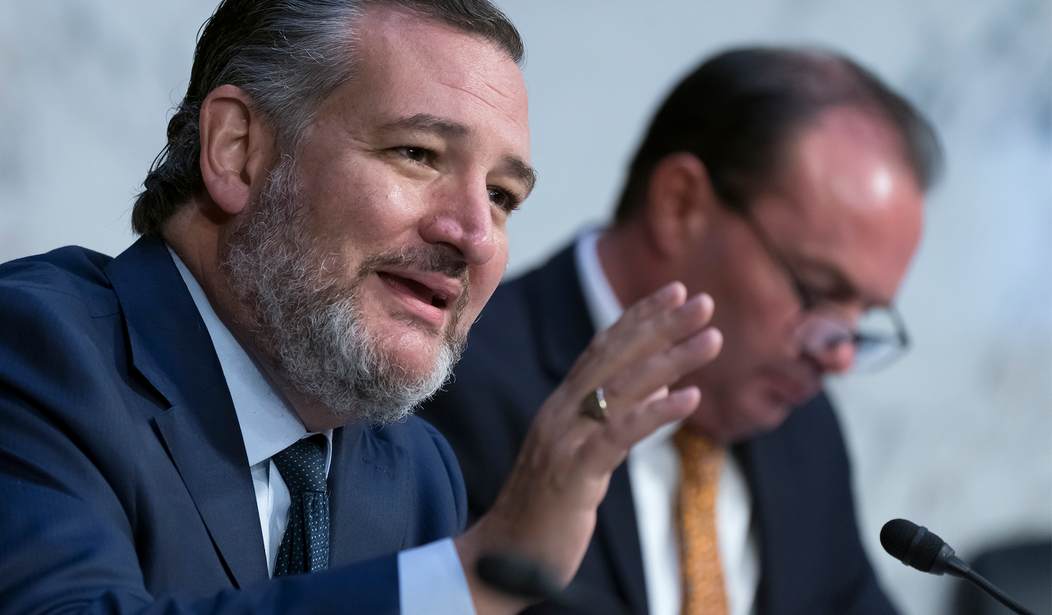A Capitol Hill source familiar with Texas Republican Sen. Ted Cruz’s efforts to save AM radio told RedState the conservative plans to hotline his bill, S.1669, “AM Radio for Every Vehicle Act of 2023,” with colleagues before the end of the week.
When a senator hotlines a bill, he reaches out to every colleague to secure consensus from all 100 senators. This process, also called "clearance," allows the bill to proceed expeditiously to passage by unanimous consent.
The source told RedState Cruz and his co-sponsor, Sen. Ed Markey (D.-Mass.), are concerned that automakers have already begun removing AM radios from new vehicles, and if it is not stopped through government action, millions of drivers will be disconnected just by the natural attrition of marketplace turnover.
Given that 73 percent of Americans over 18 listen to AM radio in their cars, losing that venue would be devastating to the platform — and its role in the country’s emergency management infrastructure.
The legislation would require automakers to make it so drivers have easy dashboard access to an AM radio.
In May, Cruz and Markey filed their bill. Still, despite widespread concerns, the automakers continue to move forward with their plans, with BMW, Ford, Mazda, Polestar, Rivian, Tesla, Volkswagen, and Volvo producing cars and trucks without AM radios. Their lobbyists, led by John Bozzella, the president and CEO of the Alliance For Automotive Innovation, on Capitol Hill, continue to twist arms to stop the Cruz-Markey bill.
In an op-ed the two men penned when they filed their bill, they gave three reasons why the legislation was vital.
First, the senators said that AM radio stations are critical to the country's Integrated Public Alert & Warning System, with significantly further signal reach than FM stations. The bill would require the Comptroller General to study what it would cost for the federal government to replicate the role of AM radio in the emergency alert system,
Second, AM radio is a big platform for talk radio, which is a home for alternative viewpoints and diverse audiences. Ninety-seven percent of Hispanics listen to AM or FM radio every month, and AM radio is an essential resource for the Black community as well — the National Association of Black-Owned Broadcasters supports keeping AM radio in cars, the senators said.
Third, the rural and agricultural listeners on farms and ranches, especially those who lack access to broadband connectivity. “There are a lot of places in the country where AM radio stations are some of the only choices people have to hear what’s going on in terms of agricultural matters, music, talk, or news,” the senators said.
Armed Forces AM station played Bing Crosby’s "White Christmas" to signal the fall of Saigon
The fight to save AM radio recalls one of the most bizarre episodes in American broadcasting history, which involves AM radio and the Armed Forces Network broadcasts.
The War Department created the Armed Forces Radio Service in 1942 to unify the Army radio stations that were springing up organically to broadcast to the millions of personnel mobilized in obscure duty stations.
While the overt reason for the radio service was to entertain the GIs, the other reason was to ensure a captive audience of U.S. military, and dependents and contractors, with up-to-date information — much easier than handing every Joe his own walkie-talkie in case something went down.
There is no better example of this function than when, on April 29, 1975, North Vietnamese forces began shelling Saigon’s Tan Son Nhut Air Base.
Although the US had signed the Paris Accords, negotiated by Secretary of State Henry Kissinger, ending American combat operations in Vietnam in 1973, the US remained in South Vietnam, providing economic and diplomatic support to the truce with North Vietnam.
When North Vietnamese forces were close enough to South Vietnam’s capital to shell the main air base, meaning the only way out was by helicopter to Navy ships standing off the coast, American Ambassador Graham Martin ordered the evacuation of Saigon, which was signaled by the Armed Forces Radio station playing Bing Crosby’s “White Christmas” on repeat.

Time Magazine war correspondent Roy Rowan described hearing the song as surreal.
“The ending was very dramatic, as everybody knows,” Rowan recalls. “The signal to evacuate was ‘White Christmas.’ I remember waking up at 3:00 in the morning and hearing ‘White Christmas’ and wondering what the hell it was going to be like trying to walk out of this place.”
Well, as it turned out, nobody walked out of Saigon that day, as Crosby sang about the treetops glistening and children listening to sleigh bells in the snow — as temperatures topped 100 degrees, but the AM signal got the message out.















Join the conversation as a VIP Member